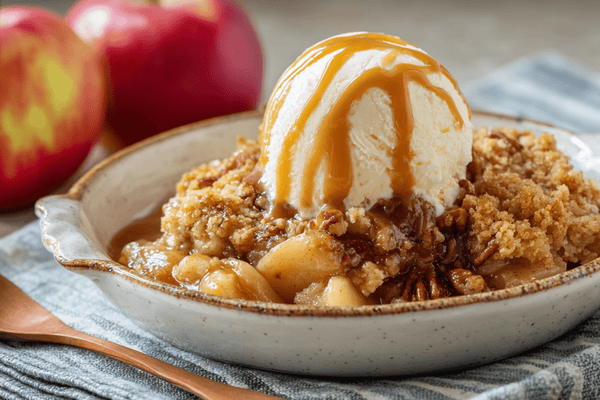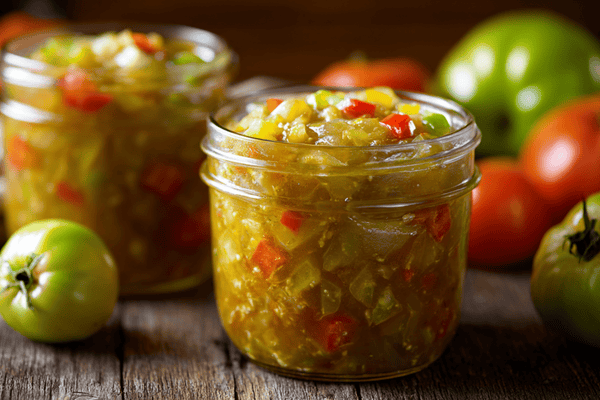
Eggplant is a popular ingredient in many cuisines around the world. It's a versatile vegetable that can be cooked in various ways, including frying, grilling, roasting, and baking. If you've never tried eggplant before, you may be curious about what it tastes like. In this article, we'll explore the flavor of eggplant, its texture, nutritional benefits, and different ways to prepare it.
Table of content
What Is Eggplant?
Eggplant, also known as aubergine, is a vegetable that belongs to the nightshade family. It's native to India but is now cultivated in many other parts of the world, including Europe, Asia, and the Americas. Eggplants come in various shapes and sizes, and their skin can range from purple to white or yellow.
What Does Eggplant Taste Like?
Eggplant has a mild, slightly bitter taste with a spongy texture. Its flavor is often described as earthy, nutty, and smoky. The taste can vary depending on the cooking method used and the spices and seasonings added. When cooked properly, eggplant can have a meaty and savory taste that's similar to mushrooms or tofu.
Texture of Eggplant
The texture of eggplant is spongy and chewy, similar to that of mushrooms. It can also be slightly fibrous, especially when not cooked properly. However, when cooked correctly, eggplant can become tender and creamy.
How to Prepare Eggplant
Before cooking eggplant, it's important to remove any bitterness that may be present. This can be done by sprinkling salt over sliced or diced eggplant and letting it sit for a few minutes before rinsing it off. This process also helps to draw out excess moisture, which can make eggplant mushy when cooked.
Eggplant can be prepared in many different ways, including:
Frying
- Slice the eggplant into rounds or strips
- Dip in beaten egg and coat with breadcrumbs
- Heat oil in a pan and fry until golden brown
- Season with salt, pepper, and other spices as desired
Grilling
- Slice the eggplant into rounds or lengthwise strips
- Brush with olive oil and season with salt and pepper
- Grill over medium-high heat until tender and lightly charred
- Serve with a sprinkle of fresh herbs and a squeeze of lemon juice
Baking
- Slice the eggplant into rounds or lengthwise strips
- Arrange in a single layer on a baking sheet
- Brush with olive oil and season with salt, pepper, and other herbs and spices
- Bake at 375°F for 20-30 minutes, or until tender and lightly browned
Roasting
- Cut the eggplant into bite-sized pieces
- Toss with olive oil, salt, and pepper
- Spread on a baking sheet and roast at 425°F for 20-25 minutes, or until tender and caramelized
- Serve as a side dish or add to pasta, salads, or sandwiches
What Are the Nutritional Benefits of Eggplant?
Eggplant is a low-calorie vegetable that's rich in vitamins and minerals. It's a good source of fiber, potassium, vitamin C, and vitamin B6. It also contains antioxidants that can help reduce inflammation and lower the risk of certain diseases, such as heart disease and cancer.
Here are some of the nutritional benefits of eggplant:
- Low in calories and carbohydrates
- Rich in fiber, which can help promote digestive health and lower cholesterol levels
- Contains potassium, which can help regulate blood pressure and reduce the risk of stroke
- Rich in vitamin C, which can boost immunity and protect against infections
- Contains antioxidants, such as nasunin, which can help protect against cell damage and lower the risk of certain diseases
FAQ
Q: Is eggplant good for you?
A: Yes, eggplant is a low-calorie vegetable that's rich in vitamins and minerals. It's a good source of fiber, potassium, vitamin C, and vitamin B6. It also contains antioxidants that can help reduce inflammation and lower the risk of certain diseases.
Q: Is eggplant bitter?
A: Eggplant can be slightly bitter, especially if it's not cooked properly. To remove any bitterness, sprinkle salt over sliced or diced eggplant and let it sit for a few minutes before rinsing it off.
Q: Can you eat eggplant raw?
A: While it's not common to eat eggplant raw, it's safe to do so. However, raw eggplant can be tough and bitter, so it's best to cook it before consuming it.
Q: What spices go well with eggplant?
A: Eggplant can be seasoned with a variety of spices, such as garlic, cumin, coriander, paprika, and oregano. It also pairs well with herbs like basil, parsley, and thyme.
Q: How do you store eggplant?
A: Eggplant should be stored in a cool, dry place or in the refrigerator. It's best to use it within a few days of purchase, as it can spoil quickly.
Conclusion
Eggplant has a mild, slightly bitter taste with a spongy texture. Its flavor is often described as earthy, nutty, and smoky. The taste can vary depending on the cooking method used and the spices and seasonings added. When cooked properly, eggplant can have a meaty and savory taste that's similar to mushrooms or tofu.
Eggplant is a low-calorie vegetable that's rich in vitamins and minerals. It's a good source of fiber, potassium, vitamin C, and vitamin B6. It also contains antioxidants that can help reduce inflammation and lower the risk of certain diseases.
There are many ways to prepare eggplant, including frying, grilling, roasting, and baking. By experimenting with different spices and seasonings, you can create delicious and nutritious meals with eggplant as the star ingredient. Whether you're a fan of vegetarian cuisine or looking to add more plant-based options to your diet, eggplant is a versatile and healthy vegetable that's worth adding to your menu.
So next time you're at the grocery store or farmer's market, pick up an eggplant and try cooking it in a new and exciting way. You might just discover a new favorite dish.</p>


